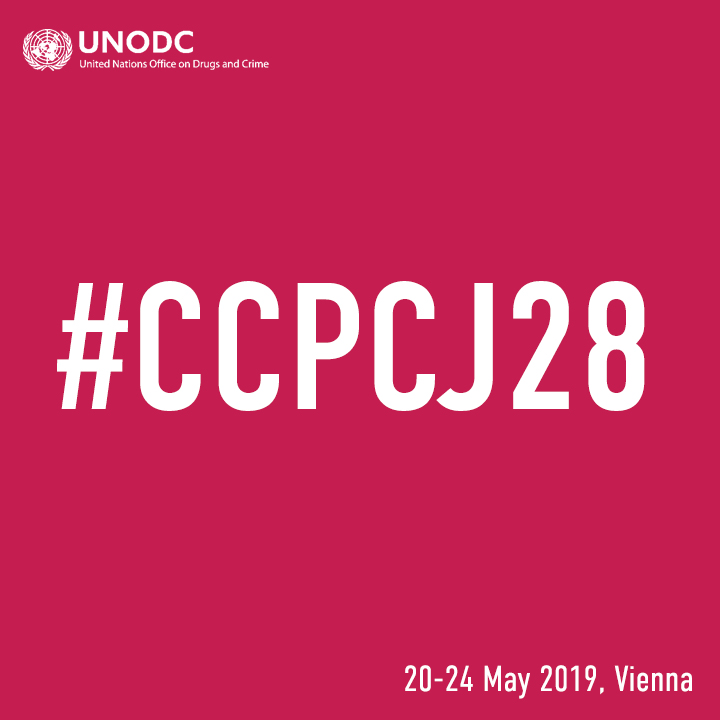
Vienna, 17 May 2019 - The responsibility of effective, fair, humane and accountable criminal justice systems in preventing and countering crime motivated by intolerance or discrimination of any kind is the key topic to be discussed at the 28th session of the Commission on Crime Prevention and Criminal Justice (CCPCJ), which begins in Vienna on 20 May 2019. The theme was selected for the thematic discussion by the United Nations Economic and Social Council (ECOSOC), in its 2016 decision.
Combating hate speech and hate crime is more urgent than ever. In January 2019, United Nations Secretary-General António Guterres, outlining his priorities for the year ahead, said the United Nations (UN) needed to engage societies to put an end to the rise of hate speech, xenophobia and intolerance, which posed direct threats to human rights, sustainable development and peace and security.
At the end of April, the UN Secretary-General warned of a "disturbing groundswell of intolerance and hate-based violence" targeting houses of worship. In response, he set in motion two urgent initiatives: a UN plan of action to "fully mobilize" the system to tackle hate speech, to be led by Special Adviser on the Prevention of Genocide, Adama Dieng; and an effort led by the High Representative for the Alliance of Civilizations (UNAOC) Miguel Moratinos to help ensure the safety of religious sanctuaries.
The Commission's thematic discussion, to be held on 21 May, thus comes at a crucial moment to address how international standards and good practices in crime prevention and criminal justice can help to prevent and counter hate crime. It will also guide the support of the United Nations Office on Drugs and Crime (UNODC) to promote effective, fair and humane criminal justice systems.
The Commission is the main policy-making body of the UN in the field of crime prevention and criminal justice. It provides a forum for the international community to discuss how to prevent and counter crime motivated by intolerance or discrimination, including racial discrimination, discrimination based on sex, gender, sexual orientation or gender identity or crimes motivated by intolerance based on religion or belief.
In preparation for the discussion, UNODC developed a guide with background information on crime motivated by intolerance or discrimination, including definitions, relevant international and regional standards, national legislation, data collection, preventive efforts and responses by the criminal justice system.
A workshop on "Hate Crime Prevention" by the Institutes of the United Nations Crime Prevention and Criminal Justice Programme Network (PNI) on 20 May 2019 will precede the thematic discussion, and will focus on up-to-date information on preventing and countering crime motivated by intolerance or discrimination; options, good practices and innovative approaches for digital-age criminal justice systems to address hate crime in a way that is effective, fair, humane and accountable; and features and initiatives related to preventing and addressing hate crimes based on gender identity and sexual orientation.
28 th session of the Commission on Crime Prevention and Criminal Justice